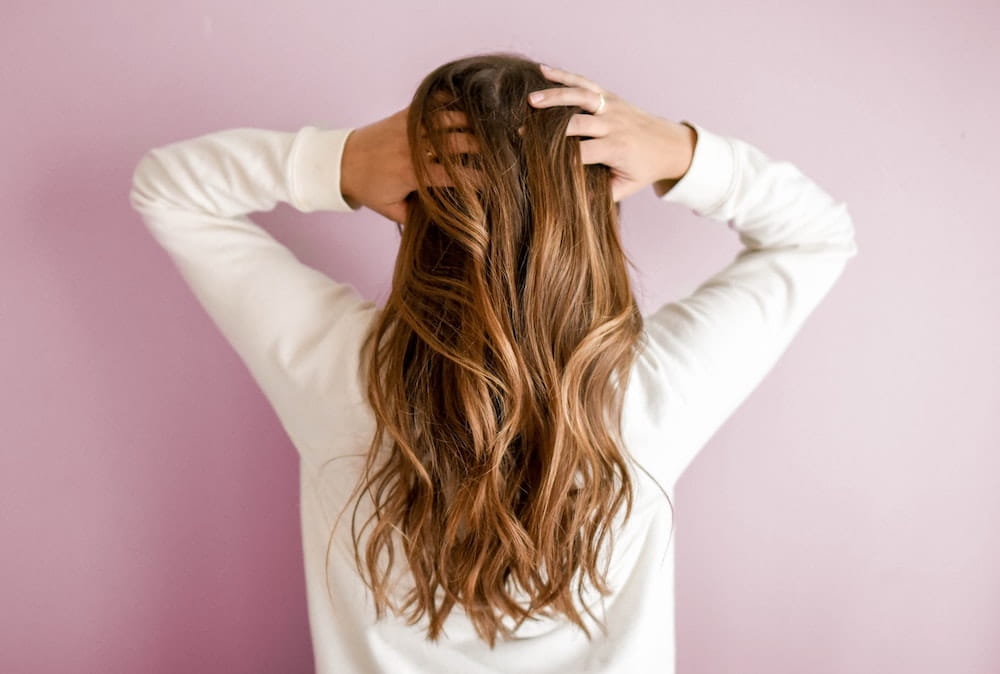
How Changing Hormones After 35 Can Trigger Hair Thinning
The most common cause of female hair loss is androgenic alopecia — a hereditary age-related condition.
According to the study Reproductive Hormones and the Menopause Transition, women lose follicles the fastest as they enter the menopausal transition.
In most cases, hair loss is treatable.
If you’re in your 30s – 60s and experiencing hormonal hair loss, there might be solutions available for you.
This article will discuss everything you need to know about hormonal changes and how they can affect your hair.
Menopause and Hair Loss
Aging women will naturally go through a biological process called menopause.
During this time, the body goes through fluctuating hormone levels.
Apart from hot flashes, vaginal dryness, and slow metabolism, menopausal women may also experience hair loss.
The lower production of estrogen and progesterone is a common culprit of androgenic alopecia.
This leads to a relative imbalance with male hormones, especially dihydrotestosterone, which is the cause for hair thinning.
Women typically witness subtler hair thinning than men, but this doesn’t make it any less impactful.
If you believe that menopause may be the cause for your hair loss, compare your experiences to the symptoms below.
Symptoms of Hormonal Hair Loss
Hormonal hair loss differs from other forms of alopecia. Below are ways to identify the condition:
Abnormal Hormone Levels
When women reach 35, they start experiencing hormonal changes, particularly in their levels of testosterone and dihydrotestosterone (DHT).
DHT regulates hair cycling and is a crucial component in region-specific growth.
It's beneficial to use supplements and topicals that can balance hormones levels within your body and on your scalp.
FullyVital’s Hair Wellness System uses palmetto, green tea, and pumpkin seed extract to balance hormones from the inside while using caffeine, capixyl, and copper tripeptides to balance hormones directly on the scalp.
Gradual Hair Thinning
Gradual hair thinning is characteristic of androgenic alopecia in women.
It starts with a slow widening of the part line and spreads to the top of the head.
During such times, women might start seeing more of their scalp when they wear their hair in a ponytail.
Treatment Type
Doctors often recommend minoxidil to treat androgenic alopecia, though supplements and serums also accelerate the healing process for such cases.
Treating Hair Loss
There are several ways to treat androgenic alopecia, including:
- Eating well: A balanced diet of fruits, vegetables and high quality fats and protein can keep your hormones in check. It can also be beneficial to minimize dairy, gluten, and sugar intake.
- Good quality sleep: Getting a good night's rest every evening can keep your stress and cortisol in check, and help balance hormones.
- Exercising: It’s crucial to get moving to fight menopausal symptoms. Walking, water aerobics, and yoga can work wonders for your overall health.
- Reducing stress: Maintaining healthy stress levels can prevent hormonal imbalance from worsening. Try breathing exercises to keep stress under control.
- Using a quality supplement and serum: The FullyVital Natural Hair Wellness System contains superfoods to fights hair thinning from the inside and plant actives to fight hair thinning from the outside.
Try it now to regain your crowning glory.
Sources
- https://www.mayoclinic.org/diseases-conditions/hair-loss/symptoms-causes/syc-20372926#:~:text=The%20most%20common%20cause%20of%20hair%20loss%20is%20a%20hereditary,baldness%20and%20female%2Dpattern%20baldness.
- https://www.ncbi.nlm.nih.gov/pmc/articles/PMC3197715/
- https://www.webmd.com/connect-to-care/hair-loss/how-hormonal-hair-loss-is-different-from-alopecia#:~:text=Hormonal%20Hair%20Loss%3A%20Gradual%20Thinning%20Of%20Hair&text=In%20women%2C%20androgenic%20alopecia%20begins,Surin%2DLord%20says.
- https://www.mayoclinic.org/diseases-conditions/menopause/symptoms-causes/syc-20353397
- https://www.eatingwell.com/article/7805452/hormone-balancing-foods-how-diet-can-help/#:~:text=Eating%20a%20diet%20high%20in%20fruits%2C%20vegetables%2C%20whole%20grains%2C,%2C%20diabetes%2C%20infertility%20and%20cancer.




